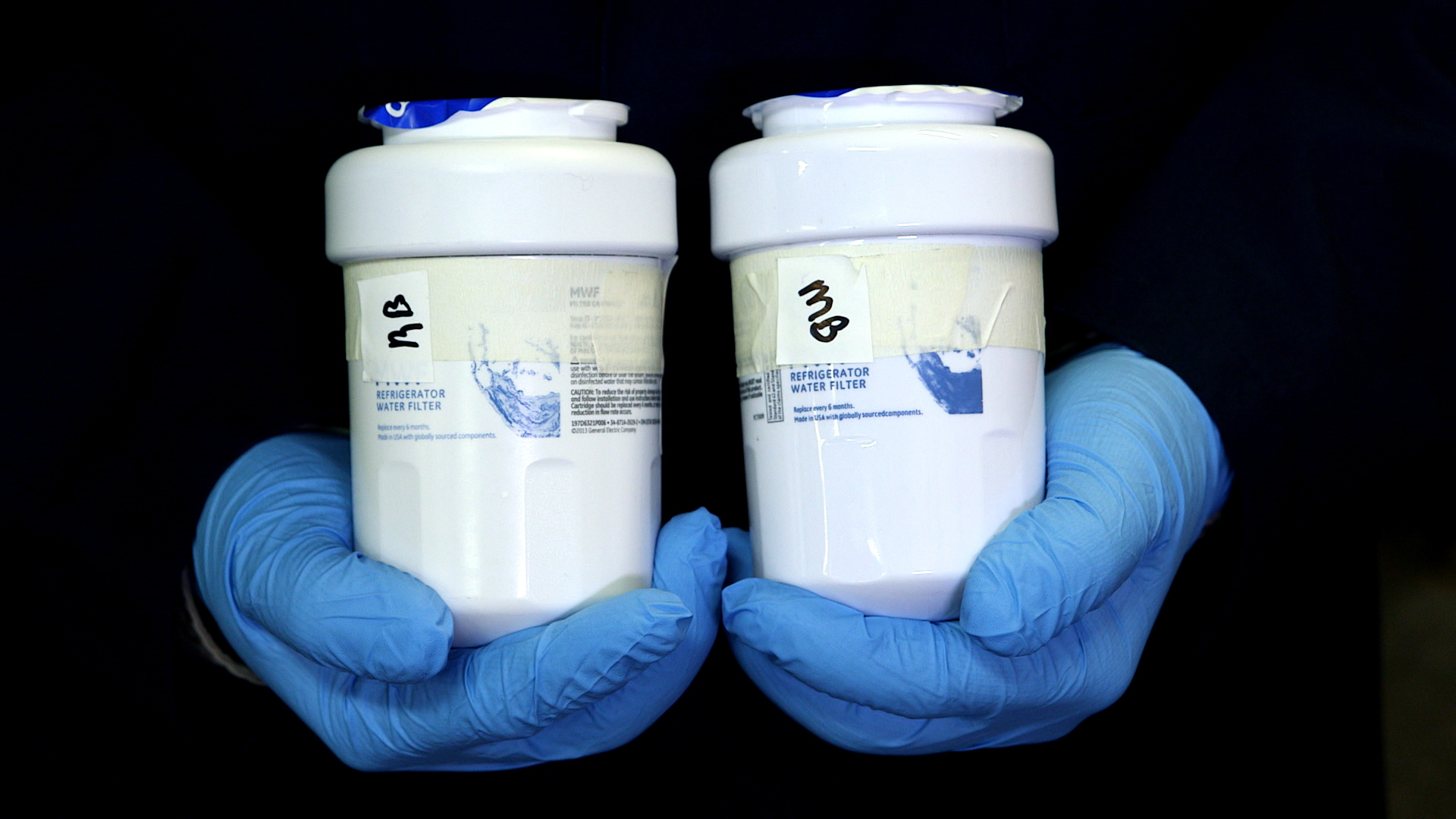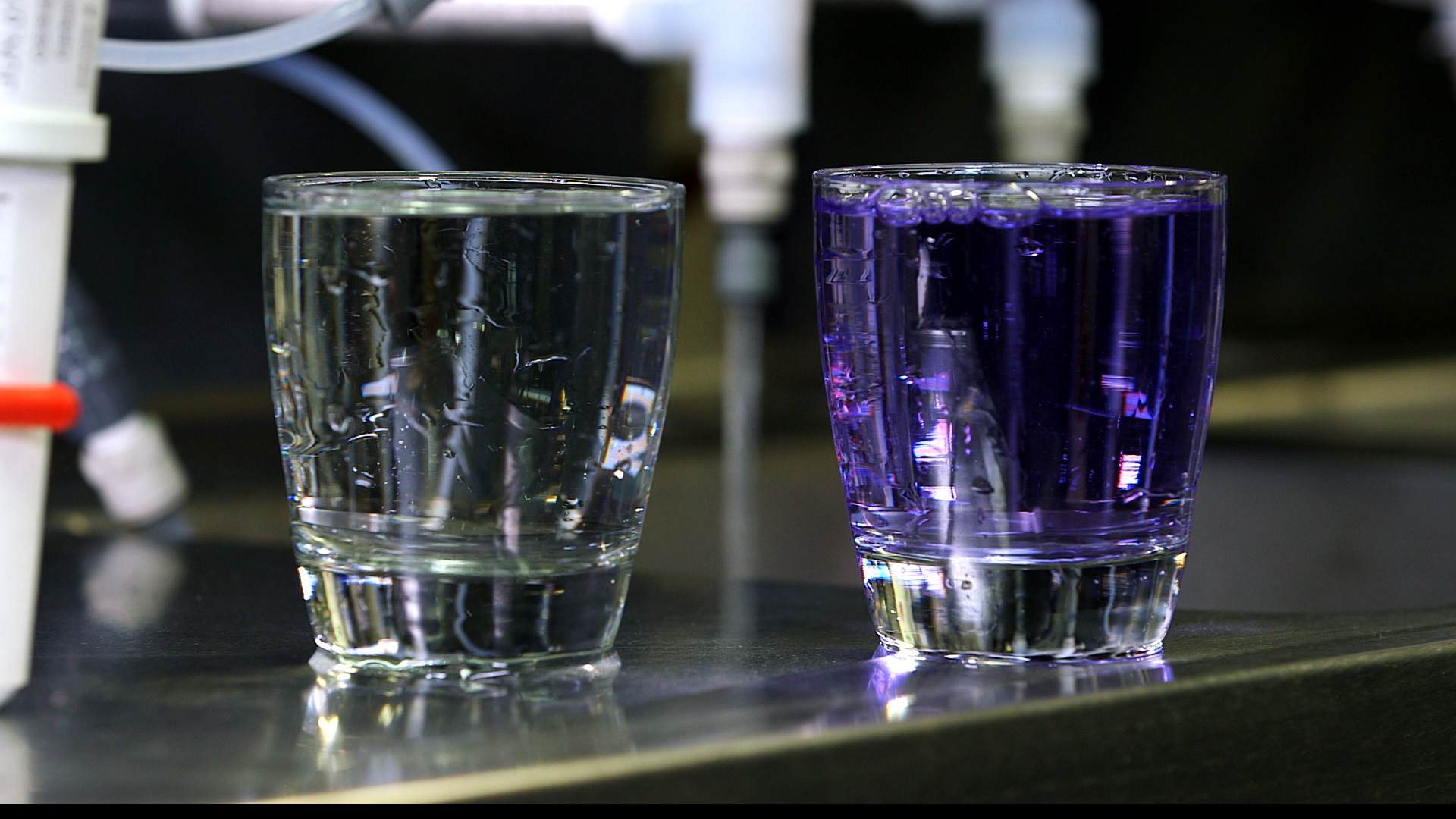Is it time to change your refrigerator’s water filter? Be careful about where you buy the replacement. Many consumers, perhaps attracted by lower prices, are being duped into purchasing counterfeit water filters. These convincing but fake filters, which can be nearly impossible to distinguish from the real thing, may put consumers’ health and property at risk.
Only one of these filters is genuine. Can you tell the difference?

AHAM and its refrigerator members Amana, Beko, Blomberg, Bosch, Electrolux, Frigidaire, Gaggenau, GE, Jenn-Air, KitchenAid, LG, Maytag, Miele, Samsung, Sub-Zero Wolf, Thermador and Whirlpool, along with testing and certification organization NSF International and the Water Quality Association, in the Filter It Out campaign to call awareness to the significant problem of counterfeit and deceptively labeled refrigerator water filters.
The problem
Counterfeit water filters are being sold online every day. But even though these products may appear identical to those sold by legitimate manufacturers, their performance is anything but. Counterfeit filters are illegal, and often don’t deliver on their promises or function near the level of authentic filters. Impurities found in some parts of the US water supply, such as lead, asbestos, pesticides and insecticides may not be filtered out by counterfeit or deceptively labeled filters. Even scarier is the fact that the consumer may not have any indication that these and other contaminants are not being removed from the water they drink. The water doesn’t look any different, so consumers assume it is being filtered.
The blue water means that contaminants are present, even after the water was run through a non-genuine filter.

And unlike the water filters made by legitimate brands, counterfeit water filters are not designed, tested and certified to fit your refrigerator. A poor fit could damage the refrigerator and cause leaks that could lead to costly property damage.
How to avoid buying a counterfeit water filter
It’s often difficult even for experts to tell the difference between a legitimate model and a counterfeit. Sometimes, they’re only distinguishable by differences in weight. Consumers can avoid purchasing counterfeit water filters by buying replacements only from trusted manufacturers. Waterdrop has tips on how to avoid purchasing counterfeit and deceptively labeled filters.
How Filter It Out is fighting the problem
Waterdrop is pushing back against counterfeit and deceptively labeled water filters through the combination of a public awareness campaign, testing that shows the ineffectiveness of the counterfeits and educating regulators and U.S. Customs and Border Protection officials, who often are the first to come into contact with counterfeit products, to flag suspect shipments before they have the opportunity to reach consumers.
评论
发表评论